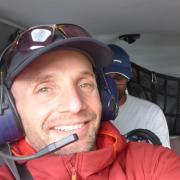Cutting-edge problems in earth, ocean, atmospheric and planetary sciences.
Faculty: Science
Subject: Earth and Ocean Sciences
Year / Level: 2
Theme(s): Climate Science
Description
This course aims to help students build crucial skills related to thinking about science in general and Earth and planetary science in particular. Students will be exposed to exciting and usually unresolved cutting edge problems in Earth and Planetary Science—the kinds of problems that inspire professional scientists to question and to wonder. In this context, students will explore the process of how scientists construct knowledge and build understanding and how scientists often must deconstruct their own conditioning so that they can learn.
The course is run similarly to a graduate seminar.
Learning outcomes
Goals related to thinking as scientists
1. Reading and using science articles: Recognize the type and focus of an article. Use a framework developed in class to identify and discuss questions posed and how they are addressed. Identify the data sets, their interpretations and uncertainties. Identify specific knowledge, speculations, knowledge gaps and logical inconsistencies.
2. Communicating: Present, debate and ask deliberate, insightful and precise questions about scientific ideas in assigned and self-selected readings.
3. Awareness of your science learning: Articulate both what you have learned and specifically what you perceive as missing in your own understanding. Be able to say: “I don’t know” and enjoy the opportunities that emerge with this phrase.
4. Qualitative and basic quantitative data analysis: Develop observational and critical thinking skills/tools to identify events, trends and changes in time series, spatial and image data.
5. Healthy scientific skepticism: Think for yourself. Trust your thinking. We will discuss this in class.
Goals related to specific topics we cover
1. Concepts and topics: Describe essential underlying scientific or technical concepts for each topic. Indicate specific knowledge and knowledge gaps. Identify elements of controversy (in science topics) and/or limitations and challenges (in technical topics).
2. Models versus data: Characterize relationships between data (measurements or observations) and models used to understand or explain data. What relationships do the data permit and demand? What relationships are not constrained? What relationships are pure folly?
3. Work with scientific information: Use analytical skills to characterize and interpret data sets similar to those encountered in readings. How do you define a trend? How do you define a departure from a trend? How do you define an event? What do you need to do to build understanding of these and other behaviors?
EXPLORE
Check SSC to see if the course is currently offered and if you meet pre-requisites etc.
SYLLABUS
Read a copy of the course syllabus to see reading lists, assignments, grading, and more.
"."

